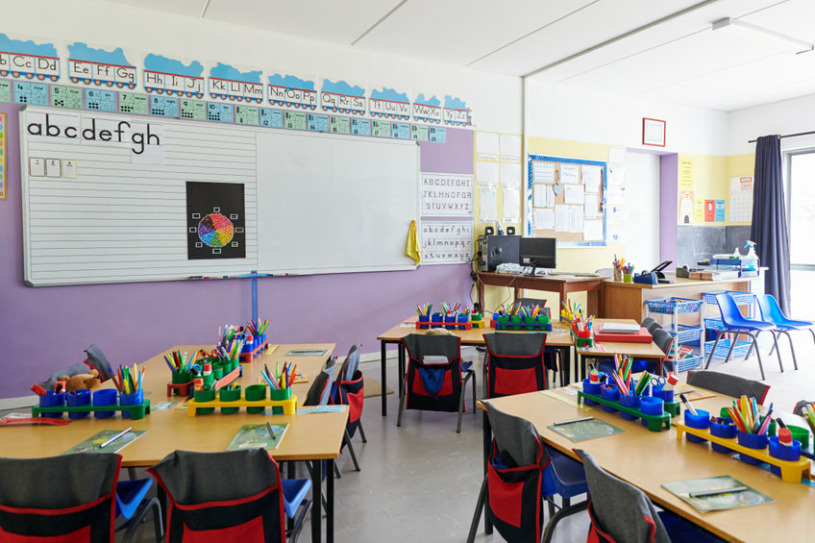
General Policy
At the center of a thriving school is a healthy, resilient and successful learner. A comprehensive school wellness program will improve the safety and health of all school community members and support the academic achievement of students. The Chelmsford Public Schools will strive to make a significant contribution to the general well-being, nutritional status, social-emotional development, physical capacity, and learning ability of each student. The Superintendent or designees shall ensure compliance with established district wide general wellness policy. In each school, the building administrator or designees shall ensure compliance. Therefore, the Chelmsford Public Schools supports the adoption and implementation of a comprehensive school wellness program at all district schools that will:
- be designed in response to demonstrated needs in the school community;
- utilize models whose effectiveness can be demonstrated;
- make efficient use of school and community resources;
- respond to families’ needs and preferences to the greatest degree possible;
- provide students with information and skills that can be adapted across the lifespan;
- include specific goals for Health Education, Physical Education, Nutrition Education, and Personal Safety and Well-being;
- encourage Principals, teachers, and staff to promote a school environment supportive of healthy eating and life-long health. School personnel are encouraged to model healthy eating and physical activity.
The comprehensive wellness program will incorporate the following components:
- Healthy School Environment– A culture and climate within schools that supports the physical, cognitive, emotional, and social well-being of school members, facilitates their safety, and is consistent with federal and state guidelines.
- Student Programs – Programs to address students’ physical, social, emotional, and learning needs. These will include, but not be limited to, peer programs, extracurricular activities, student assistance programs, and enrichment programs.
- Staff Support Programs – The District promotes and supports the physical and social/emotional wellness of all employees by providing professional development in the areas of physical health and development, socio-emotional issues, and nutrition. Employees can also access an array of programming and resources on topics including nutrition, exercise, emotional wellness and self-care through a partnership with MIIA (Massachusetts interlocal Insurance Association) and additional resources including free, confidential counseling and advocacy through a partnership with the All One Employee Assistance Program
- Pupil Services – School nurses, school psychologists, and school counselors will be available to provide for the health-related and social-emotional needs of individual students.
- Curriculum, Instruction, and Assessment– Chelmsford staff and faculty members will plan, implement, and evaluate an appropriate pre K – 12 curriculum that addresses essential health and safety issues.
- Community Connections – School personnel will strive to establish relationships among families, members of the school community, and members of the greater Chelmsford community in order to identify and facilitate access to available wellness resources.
- School Wellness Advisory Committee– To monitor the progress of the policy, use data to make informed recommendations for programmatic/policy adoption, and provide an annual report to the Chelmsford School Committee and Superintendent.
Health Education and Nutrition Education
A comprehensive program of health education that is designed to promote healthful living and discourage health-risk behaviors will be offered 5th through twelfth grade. The CPS Health Education curriculum will enable students, through a comprehensive curriculum, to acquire the knowledge and skills necessary to make healthy lifestyle choices. Health literate graduates of the school system will be able to:
- Comprehend concepts related to health promotion and disease prevention;
- Access valid health information and health-promoting products and services;
- Practice health-enhancing behaviors and reduce health risks;
- Analyze the influence of culture, media, technology, and other factors on health;
- Use interpersonal communication skills to enhance health;
- Use goal-setting, decision-making, and self-management skills to enhance health; and
- Advocate for personal, family, and community health.
The health education program will be an integral part of a coordinated school health program, be consistent with the Massachusetts State Frameworks and coordinated by the district health education coordinator. The health education program will:
- Include accurate and up-to-date information;
- Use active, participatory instructional strategies and techniques;
- Be appropriate to students’ developmental levels, personal behaviors, and cultural backgrounds;
- Focus on the behaviors that have the greatest effect on a person’s health and emphasize the short term and long-term consequences of personal health behaviors;
- Encourage students to assess their personal behaviors and habits, set goals for improvement, and resist peer and wider social pressures to make unhealthy choices;
- Address students’ health-related concerns;
- Utilize curriculum materials that are gender-neutral and non-stereotyping;
- Assess students’ achievement of health knowledge and skills with common assessment instruments aligned with the curriculum;
- Be appropriately adapted to the special needs of students with disabling conditions;
- Be taught by well-prepared specialists who are highly qualified and certified by the state to teach health education with adequate support;
- Be allocated enough instructional time to achieve the program’s goals;
- Be taught in classes that are the same average size as classes in other subject areas;
- Include means for program evaluation;
- Involve parents and families as active partners in their children’s learning;
- Provide nutrition education knowledge and skills necessary to promote health;
- Integrate nutrition topics within the comprehensive health education curriculum.
Physical Education and Physical Activity
Chelmsford Public Schools will establish specific learning goals and objectives for physical education. A sequential, developmentally appropriate curriculum shall be designed, implemented, and evaluated to help students develop the knowledge, motor skills, self-management skills, attitudes, and confidence needed to adopt and maintain physical activity throughout their lives. The Physical Education program will be an integral part of a coordinated school health program coordinated by the district Health and Physical Education Coordinator. The physical education program will:
- Emphasize knowledge, skills, and personal goal-setting for a lifetime of regular physical activity;
- Be consistent with Massachusetts State Frameworks for physical education and with national standards that define what students should know and be able to do;
- Provide many different physical activity choices;
- Feature cooperative as well as competitive games;
- Meet the needs of all students;
- Take into account gender and cultural differences;
- Teach self-management skills as well as movement skills;
- Actively teach cooperation, fair play, and responsible participation in physical activity;
- Have student/teacher ratios comparable to those in other curricular areas;
- Promote participation in physical activity outside of school;
- Focus, at the high school level, on helping adolescents make the transition to an active (adult) lifestyle;
- Provide a home link with information to caregivers to help them promote and incorporate physical activity and healthy eating into the children’s lives;
- Offer comprehensive Physical Education from Pre-K through Grade 12;
- Schools may not allow students to be exempt for required physical education class time or credit unless medically necessary;
- There will be no substitutions allowed for physical education time requirements;
- Schools will not withhold physical education from students as a punishment for poor behavior or incomplete class work.
Adapted Physical Education will be included as part of individual education plans for students with chronic health problems, other disabling conditions, or other special needs that limit or preclude such students’ participation in regular physical education instruction or activities.
Physical education will be taught by highly qualified specialists who are certified by the state to teach physical education. All physical education teachers will regularly participate in professional development activities to effectively deliver the physical education program. Preparation and professional development activities will provide basic knowledge of the physical development of children and adolescents combined with skill practice in program-specific activities and other appropriate instructional techniques and strategies designed to promote lifelong habits of physical activity.
Physical Activity
Chelmsford Public Schools recognize the importance of daily physical activity in and outside the classroom. Regular physical activity provides significant benefits for health and will be encouraged in and outside the school day.
- Provide at least one daily recess period in PreK through grade 6 which is not used as a punishment/reward.
- In an effort to engage families and the community, CPS will strive to offer physically active opportunities across the district.
- CPS will encourage physical activity break opportunities during the school day.
Teachers will aim to develop students’ self-confidence and maintain a safe psychological environment free of embarrassment, humiliation, shaming, taunting, or harassment of any kind. Staff shall not order performance of, or withhold physical activity as a form of discipline or punishment.
Nutrition
Chelmsford Public Schools recognizes that an intake of healthy, nutritious food is essential for students to succeed academically. Healthy eating patterns during childhood can affect eating patterns in later years; therefore, students need to gain the knowledge and skills that are necessary to select foods that promote lifelong health. Students of all ages need the knowledge to help them make appropriate food choices, and to understand food promotion through media messages regarding realistic body size and shape.
Food Service and Appropriate School Personnel will:
- Provide an assurance that guidelines for reimbursable school meals will not be less restrictive than regulations and guidance issued by the Secretary of Agriculture pursuant to subsections (a) and (b) of section IO of the Child Nutrition Act (42 U.S.C. 1779) and section 9 (t) (1) and 17 (a) of the Richard B. Russell National School Lunch Act (42 U.S.C. 1758) (t) (1), 1766 (a) 0, as those regulations apply to schools. The School Breakfast and Lunch programs will operate in accordance with the USDA nutrition standards for school meals.
- Include fresh fruits and vegetables from local farmers when practicable in school meal offerings;
- Serve students a reimbursable meal, regardless of whether the student has money to pay and/or an outstanding balance owed. Schools will not stigmatize students who are unable to pay for their meal.
- Provide enough time for students to eat.
- Make potable water available to all students during the day and at meals free of charge, at water fountains and water-filling stations located throughout the school facilities (not bottled water).
- Ensure profit generation will not take precedence over the nutritional needs of the students. The child nutrition program will aim to be self-supporting; however, the program is an essential educational support activity. If subsidy of the child nutrition fund is needed, it will not be from the sale of foods with minimal nutritional value or compete nutritionally with program meals;
- Emphasize that food not be used as a reward or punishment for student behaviors, unless it is detailed in a student’s Individualized Education Plan, 504 Plan, Health Care Plan or any other document utilized to meet the specific needs of a student;
- Refrain from using candy, snacks of minimal nutritional value, and soft drinks as rewards for students or as manipulatives in curriculum activities, and seek non-food alternatives in holiday and birthday parties in the classroom;
- Ensure that all students have affordable access to the varied and nutritious foods needed to promote life-long health;
- Ensure applications for free or reduced-price school meals are readily available. Applications can be found on the School District Website under “Nutrition.” Physical applications are also available in the School Nutrition Office and at the Administration Building.
- Protect student privacy by utilizing a Point Of Sale (POS) system in which students are not overtly identified for receiving free or reduced meals;
- Be sensitive to the school environment in displaying food providers’ logo and trademark on school grounds;
- Be consistent with established nutrition environment standards with the advertising of foods and beverages in the areas accessible to students during mealtimes;
- Meet hiring and annual continuing education and training requirements in accordance with the USDA Professional Standards for Child Nutrition Professionals;
- Comply with all state and local food safety regulations. Hazard Analysis and Critical Control Point plans and guidelines will be implemented to prevent food illness in schools;
Regarding Competitive Foods & Beverages:
The district discourages consumption of competitive foods in place of school meals by limiting competitive food choices during meal times in the cafeteria.
- Per state and federal regulations, all competitive foods and beverages sold to students outside of the school meal programs during the school day (defined as midnight before to 30 minutes after school ends) must meet the USDA Smart Snacks in School nutrition standards and the MA 105 CMR 225.000: Nutrition Standards For Competitive Foods And Beverages In Public Schools. This includes foods sold at school stores and other a la carte items. Items sold in vending machines must remain compliant with these nutrition standards at all times.
- All nutrition information will be made available to students for non-prepackaged competitive foods and beverages served in the cafeteria (this does not apply to fresh fruit and vegetables).
- Any foods served (not sold) to students free of charge are encouraged to adhere to the above mentioned state and federal nutrition standards for competitive foods and beverages. This includes, but is not limited to, classroom celebrations or school-wide events.
Regarding In-School Fundraisers:
- In accordance with USDA Smart Snacks in School nutrition standards, all foods and beverages sold during the school day (defined as midnight before to 30 minutes after school ends) as part of an in-school fundraiser must comply with federal nutrition standards. Fundraisers that sell non-food items or foods or beverages that meet the nutrition standards are acceptable.
Principals, teachers and staff will promote a school environment supportive of healthy eating and life-long health. School personnel are encouraged to model healthy eating by serving nutritious food at school meetings and events.
Wellness Promotion and Marketing:
Chelmsford Public Schools recognizes that the images and promotions of unhealthy foods and beverages are inconsistent with our general wellness policy and our efforts to promote healthy choices by our students.
- An effort will be made to remove marketing of foods and beverages that do not meet Smart Snack standards from the cafeteria and school grounds. Existing vending machines, branded serving containers, and coolers with logos will be replaced when possible.
- Prohibits all marketing of food and beverages that do not meet Smart Snack nutrition standards
- It is recommended that schools avoid participating in fundraising or corporate incentive programs that promote a message inconsistent with our goals for a healthy school community.
Health and Safety
Chelmsford Public Schools strive to provide a safe environment that supports academic success by:
- Providing school buildings and grounds, buses and equipment with devices/technology that meet required health and safety standards that include environmental air quality, sanitation, water, snow, and ice removal keeping them inviting, clean, safe and in good repair;
- Creating an environment where students, parents/guardians and staff are respected, valued and accepted with high expectations for personal behavior and accomplishments;
- Providing staff training in appropriate safety procedures that include, but are not limited to, Staff Crisis Manual, Policies, Crisis Teams, Mandatory Reporting Responsibilities, Harassment, Life Threatening Allergies, Nonviolent, Crisis Intervention, and Blood Borne Pathogens;
- Working with staff, students, and the Chelmsford community in conjunction with local law enforcement, to maintain a school environment that is free of tobacco, alcohol and other drugs;
- Effectively communicating safety issues with staff, students and the community including but not limited to E-Mail, Connect Ed calls, and news releases;
- Using cleaning supplies that are effective and safe for use in schools with safety information provided for their proper use;
- Complying with health, state, and federal laws to support safe food preparation, food storage and addressing cross contamination concerns in the Food Service Department;
- Supporting school programs that teach and practice safety measures that include, but are not limited to, fire safety, bike helmet, live smart, universal precautions/hygiene, and Darkness to Light;
- Supporting a district wide Food Allergy Program.
The Wellness Procedural Guidelines will be implemented by the Superintendent. Each principal shall monitor the Review of Compliance. He/she may delegate tasks such as safety checks and instruction as necessary.
School Wellness Advisory Committee
In accordance with Massachusetts General Law C.111 section 223 the Department of Public Health has established guidelines for the creation, implementation and role of School Wellness Advisory Committees.
The School Wellness Advisory Committee for the Chelmsford Public School District will have representation from:
- Community Serving Agencies (Local Health Care, Hospital, Mental Health providers)
- Nutritional and Food Service Staff
- Parents
- Physical and Health Education Staff
- School Administration
- School Committee
- School Nursing Staff
- Students
The School Wellness Advisory Committee is charged to meet 4-5 times per year in order to:
- Establish observable and measurable goals and objectives based on review of student and public health data as well as input from the school and community at-large;
- Make recommendations regarding district programs and policies to promote student wellness;
- Assess district compliance to state and federal wellness policy:
- Every three years, review the latest national recommendations pertaining to school health and update the wellness policy accordingly.
- Every three years, conduct a quantitative assessment of policy implementation using the Wellness School Assessment Tool-Implementation (WellSAT-I), the School Health Index or equivalent tool
- Communicate with district personnel and community
- Communicate to the Superintendent, School Committee, each school’s Multi-Tiered Systems of Support (MTSS) team, and public, information regarding programs, policies, and community links related to the general well-being;
- Deliver an annual report to the Superintendent and the School Committee that includes the goals, action plans, progress monitoring and identification of areas that need to be addressed for the upcoming school year.
- Deliver a triennial progress report with information about each school’s wellness related activities which will be shared with the entire school community.
Protocol for Faculty, Staff, and Principals for Food during the School Day
The Chelmsford Public Schools will determine in advance any special school-wide events that will include food. Food will only be used in curriculum and special school events during the school day when protocol is followed and the protocol checklist form is filled out two or more weeks before the event.
The following steps should be followed when a teacher is planning to use food for a curriculum activity or school event:
- The teacher should speak to the Principal about the plan to include food in curriculum instruction or related activity for approval. If the Principal wants he/she may contact one of the Wellness Committee Co-chairs for further assistance/clarification.
- The teacher shall send a letter home to all parents/guardians of all students involved informing them that food will be used in the specific curriculum activity or special school event.
- The teacher shall discuss plans with the school nurse to review any allergy concerns and other considerations prior to the activity/event.
- The school nurse may require a letter sent home to all parents/guardians of students in the class and/or have a conversation with parents directly who have students with food allergies.
- When all steps are complete, the “Faculty/Staff Food Protocol Checklist” should be submitted to the Principal for final approval and signature.
School staff shall not use candy, soft drinks, nor snacks of nutritional value not meeting nutrition standards set for public schools in non-curriculum related classroom-based celebrations nor as rewards for students during the academic school day.
Life Threatening Food Allergy Policy
The Chelmsford School Committee recognizes that students may have reactions to allergens that range from mild to severe life threatening anaphylactic reactions. The Chelmsford School Committee also recognizes the importance for the Chelmsford School District to have a clearly defined plan relative to any allergy for students. The Administration and staff of the Chelmsford Public Schools (CPS) shall comply and implement protocols established to minimize the risk of exposure to allergens that pose a threat to students, plan for the individual needs of students with life-threatening food allergies, and educate all members of the school community on Life Threatening Allergies (LTA). The plans and protocols should address: (a) measures to reduce exposure to allergens; and (b) procedures to treat allergic reactions.
Part of the plans on life threatening allergies for students will aim to assist students with assuming more individual responsibility for their health and safety as they grow older and to ensure full participation in the full potential of educational programs and school sponsored activities.
An effective food allergy program needs the cooperation of parents, teachers, counselors, professional support personnel, school nutrition food service director/personnel, administrators, school nurses, school physicians, primary care physicians, extracurricular advisors, bus/transportation personnel, and any staff that might be present where children can be exposed to the food allergens that can trigger their extreme reaction.
Protocols and procedures for the Management of Life-Threatening Food Allergies in the CPS will be reviewed and/or modified as appropriate, by the district Wellness Advisory Committee.
- Annually, district- wide and building-based education and training is mandated to staff regarding the management of student allergies, recognition of signs of an allergic reaction, and activation of the emergency response plan.
- Additionally, the head nurse shall ensure that training is offered on the administration of epinephrine via auto injector to all staff.
- A health care plan including accommodations for prevention, management and emergency response shall be developed in collaboration with parent/legal guardian/doctor for each student with a medically diagnosed life-threatening allergy.
- Inclusion of food for curriculum instruction and related activities or special grade-wide events, requires strict adherence to the food allergy management protocol and consultation with the nurse and approval of the principal.
- Staff employed by CPS to supervise and/or coach students who are participating as members of school sponsored athletic teams, clubs, and other extracurricular activities beyond the school day are responsible for implementing management measures of students with Life Threatening Allergies while the students are under the staff´ supervision and shall demonstrate epi pen training.
- Unless otherwise required by law, CPS staff is not responsible for implementing the Food Allergy Policy and related protocols and procedures during (A) school sponsored events beyond the school day that are open to the public (e.g. school athletic contests, plays, or ceremonies) or (B) programs or events on CPS property that are sponsored by various parent, community, and private groups.
LEGAL REFS.: M.G.L. 258C:13; 71:55A
Americans with Disabilities Act
REFS.: Managing Life Threatening Allergies in Schools. – Massachusetts Department of Education and Massachusetts Department of Public Health, 2002
Approved: June 15, 2021





